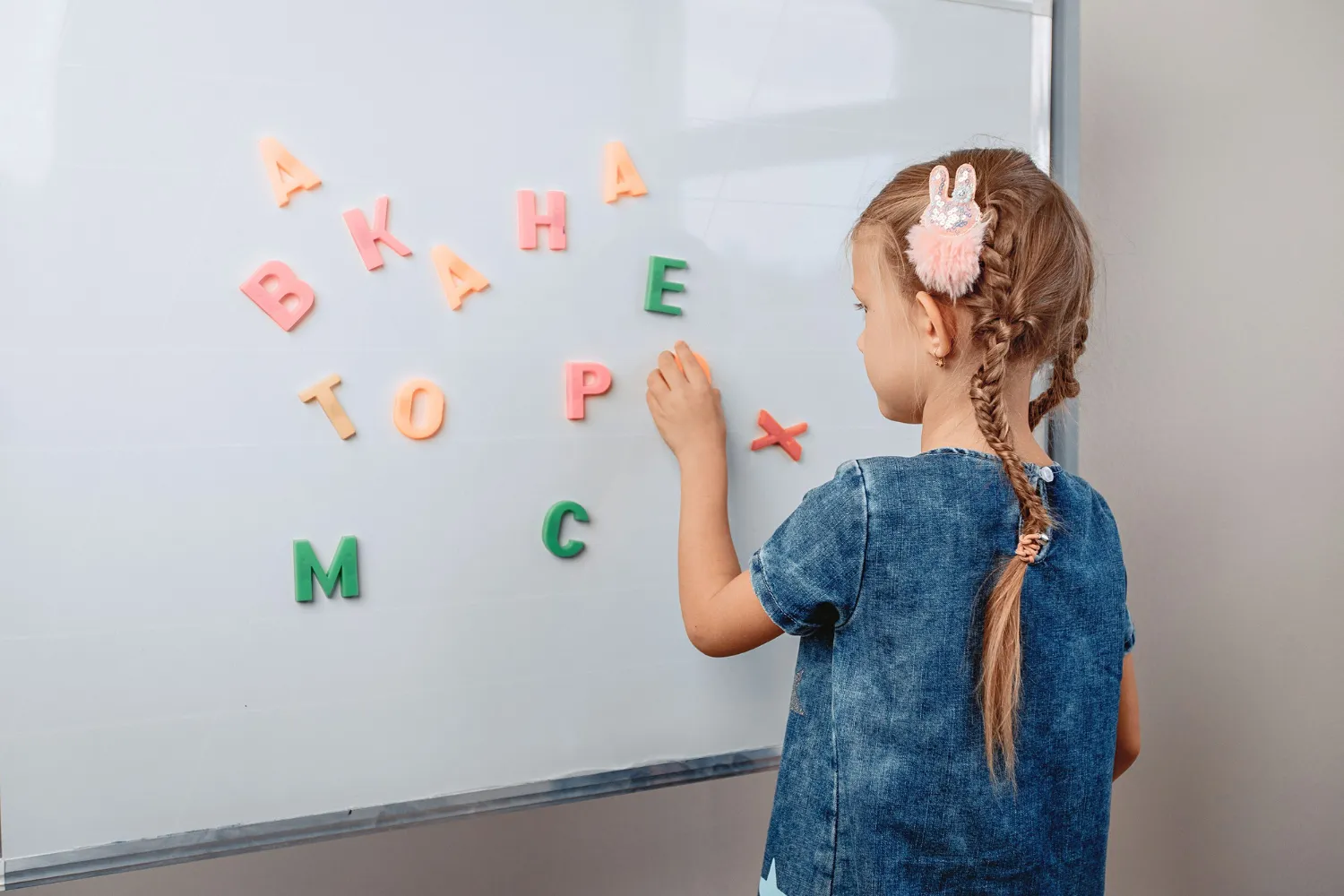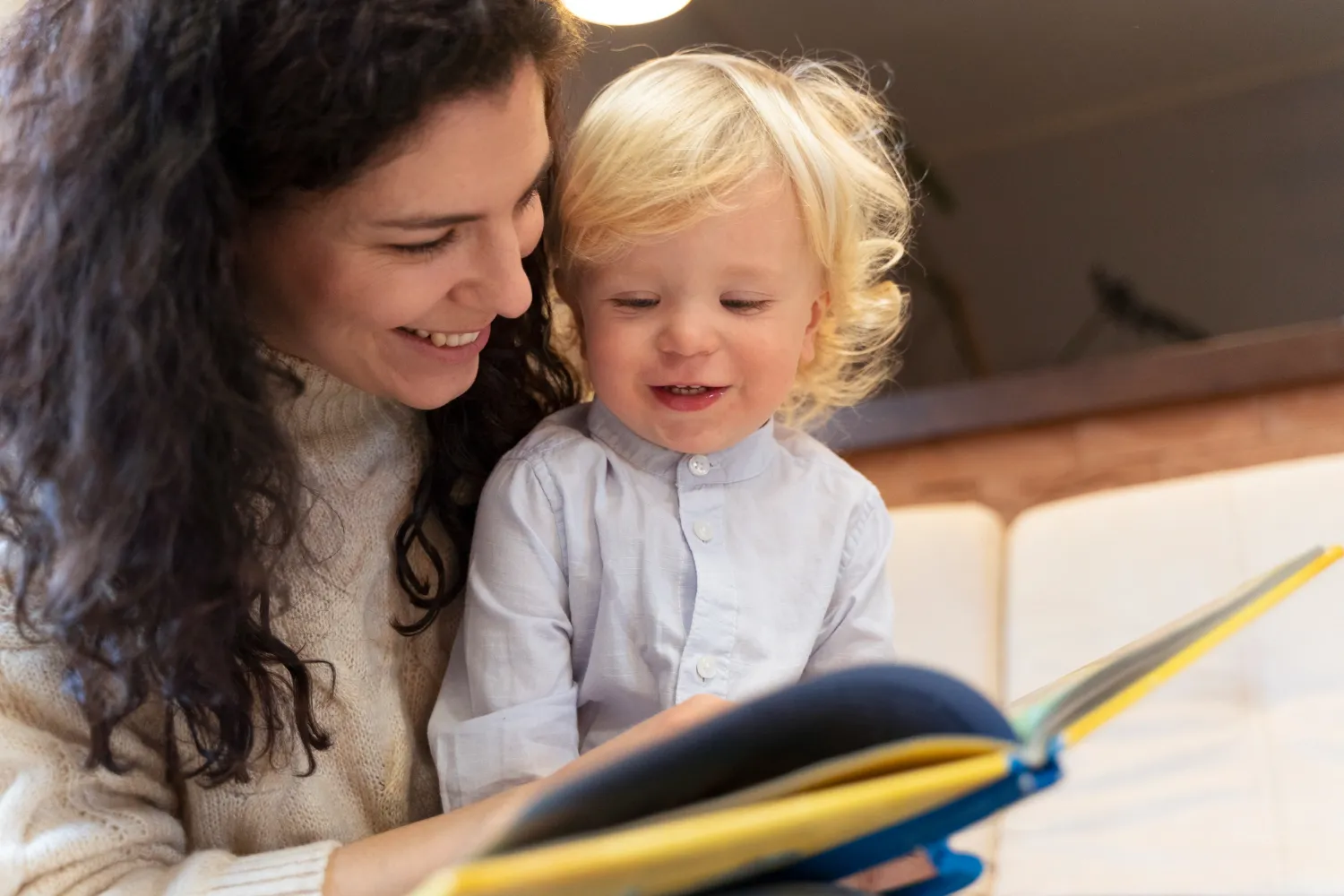Toddler Speech Development - When Should I be Concerned?

Toddler Speech Development - When Should I be Concerned?
Toddler speech development is a broad and fascinating topic. In just 12 to 18 months, your baby goes from crying to communicate, to speaking real words—it's a confusing, miraculous and fascinating thing! But how does it happen and when should I be concerned?
A fellow toddler mum asked me the other day: “Why is it that my toddler can say turtle in perfect English, but calls the vacuum a yabee?”
This is such an excellent question and an excellent place to begin. The short answer is that some words are simply easier to say because some sounds are easier to make. But what’s tricky is that every child finds different sounds easier or harder.
Babies usually start babbling around 6 to 9 months old with simple sounds like “dadada,” “mamama,” or “bababa.” These sounds come from easier consonant-vowel combinations, and most babies will have a favorite. So if your child says “mama” or “dada” first, it’s likely more about the sounds they can make than who they love more (sorry!).
As they grow, they learn new sounds and start forming words. In the case of our turtle-loving toddler, he might have already mastered the ‘t’ and ‘l’ sounds in “turtle”, but not the harder ‘v’ and ‘k’ sounds in “vacuum”. Plus, kids are more likely to practice words they hear often or care about—and let’s face it, turtles are way more fun than vacuum cleaners!
So When Should You Be Concerned About Speech Development?
While every child develops at their own pace, and variability is completely normal, there are some key milestones and red flags to be aware of. Early identification is important because delays in communication can impact social skills, learning, and even emotional regulation.
By 12 months, most toddlers should:
- Use a variety of sounds in babbling (e.g., baba, dada, gaga)
- Recognize their name and familiar words
- Respond to simple requests (like “come here”)
- Use gestures like pointing, waving, or reaching to communicate wants
🚩 You should be concerned if:
- Your child is not babbling at all
- Your child does not respond to sound or voices
- Your child does not use any gestures
By 18 months, toddlers typically:
- Say around 20-30 words
- Imitate familiar words and sounds
- Understand simple commands (“get your shoes”)
- Use words to express needs (even if imperfectly)
🚩 You should be concerned if:
- Your child has fewer than 10 words
- Your child only uses gestures (no speech) to communicate
- Your child does not seem to understand familiar words or directions
By 2 years, toddlers typically:
- Should have at least 50 words and start combining two words (e.g., more juice, daddy go)
- Should be understood by family at least 50% of the time
- Show interest in talking and imitate sounds or phrases
🚩 You should be concerned if:
- Your child has fewer than 50 words or no word combinations
- Your child has very unclear speech
- Your child does not follow simple two-step commands
- Your child is regularly frustrated that people cannot understand him/her
By 3 years, children typically:
- Have speech which can be understood by strangers about 75% of the time
- Use 3–4 word sentences
- Ask questions
- Follow more complex directions
🚩 You should be concerned if:
- Your child's speech is mostly unintelligible
- Your child has a limited vocabulary or uses short phrases only
- Your child displays frustration with communication leading to frequent meltdowns
Other Factors That Might Influence Speech Development
- Bilingual homes: Language development may look a little different, but true delays should be apparent across all languages the child is exposed to.
- Hearing issues: Even mild hearing loss (from frequent ear infections, for example) can cause speech delays.
- Speech sound preferences: Some kids simply prefer certain sounds and will avoid harder ones until they’re ready.
- Personality and temperament: Quieter, more cautious toddlers might speak later—but that doesn’t mean they aren’t learning.
Final Comments
Not all speech delays mean something serious. But it’s always better to ask than wait and see. If you’re at all concerned, it’s never too early to consult with a speech pathologist. Early support can make a huge difference, and sometimes, all it takes is a few tweaks in your daily interactions to set your child up for speech success.
If you're not sure where to start, give us a call. We can arrange a phone consultation, a screening or an assessment depending on what you need. Trust your gut. You know your toddler best.











.webp)
















